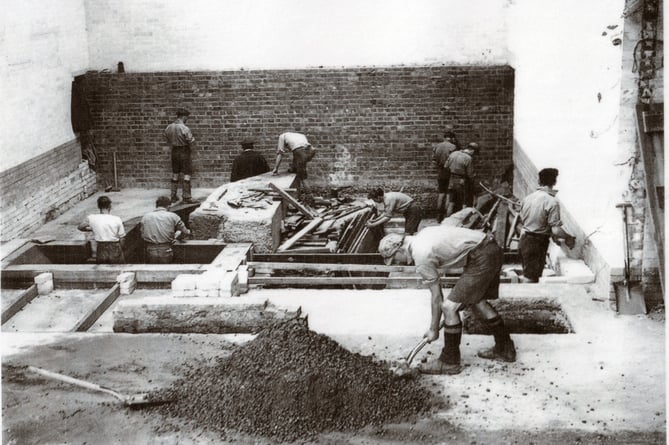The little-known story of Dartmoor Prison’s period as a borstal is being told for the first time in a new book.
Princetown author Pip Barker, a former worker, now volunteer at the prison’s museum, is now telling the short-term and temporary experiment with youth custody at the prison between 1945-1947 at a time when there was spare capacity to take 250 boys, housed separately from adults. Although not an ideal choice, there was a shortage of specific borstal places, and Dartmoor was chosen until more was available.
Little has been researched or written about the prison when it housed youths, aged 18 to 23, to reform their lives and turn them away from persistent offending with a stuctured programme - an important part of the prison’s previously unrecognised role.
Pip said: ‘It’s an interesting and important chapter in the long life of HMP Dartmoor. Borstals were usually in towns and cities where the boys generally lived. So for them to be dispatched to the middle of nowhere on a lonely moor was very different.
‘The regime was designed to be very tough and disciplined. The boys had a full day based on useful work and they were also trained on formal vocational courses with hours of evening education.
‘They learned brick-laying, sewing mail bags, metal work and farm work in the prison farm, as well as taking classroom lessons.
‘There was an emphasis on farm work at Dartmoor because of its location, but there were drawbacks to being so far from town life because they couldn’t have any practical preparation for the world of work.
‘In towns they had the chance to follow a skilled metal worker in a factory, perhaps. But they could more readily practise farm trades on Dartmoor. So, there was a limit to the usefulness of the vocational training in Dartmoor Prison.’
Pip’s book Dartmoor’s Borstal Boys’ was helped by one of the few living ex-Dartmoor borstal boys - renowned escapee Anthony Knight, who wrote about his lengthy borstal life elsewhere. On arriving at forbidding Dartmoor he said: ‘The rain wet stonework glittered in the gas lantern light as the fog swirled, like a scene from The Hound of the Baskervilles film.’
He said: ‘Anthony told me he was taunted by the Dartmoor governor, who promised he’d never escape, despite his reputation. Inevitably he did escape after three days, stealing a car with others.’
Sadly, one borstal boy never escaped Dartmoor after dying injuring himself diving into a lake to swim and is buried in Princetown church graveyard - an isolated gravestone marks the spot.




